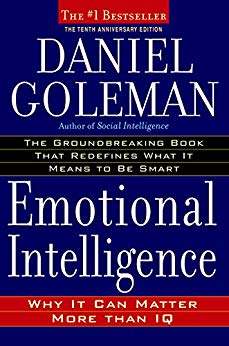

This article is an excerpt from the Shortform summary of "Emotional Intelligence" by Daniel Goleman. Shortform has the world's best summaries of books you should be reading.
Like this article? Sign up for a free trial here .
Criticism, or feedback, is one of the major workplace areas that we need emotional intelligence.
People need feedback to do their jobs better and keep their work on track. Like cogs in a clock, every part of a system needs to be running at its best to keep the whole system going; in a workplace, people are the cogs, and everyone needs feedback to improve their performance for the sake of the whole.
Managers must be good at both giving feedback and receiving it. It makes a difference in how successful a workplace is. The better you are at giving feedback and receiving it yourself, the more satisfied and more productive your employees will be.
Read this to learn how to give feedback, but we’ll discuss how to receive feedback here.
How to Receive Feedback at Work
Here are some approaches for receiving feedback and criticism to the best results:
- Good feedback helps you get better. Try not to see criticism as a personal attack, but as an act of caring designed to help you improve.
- Take responsibility. It’s easy to get defensive when we perceive that we’re being attacked. If you feel the criticism is unfair, you can express that–but if you find yourself making excuses, try to pause and listen to what your manager is saying first, before you launch into defending yourself. If your manager is capable of giving good feedback, she has probably identified something you know you struggle with. Accept responsibility for your mistakes and motivate yourself to learn how to correct them.
- Feedback is an opportunity to work with your manager towards improvement. Criticism should be a cooperative endeavor. Much like it helps to go into a job interview with the mentality that you’re interviewing the company as well, it can help to go into a feedback meeting with a manager assuming that this is a project you’re working on together.
———End of Preview———

Like what you just read? Read the rest of the world's best summary of Daniel Coleman's "Emotional Intelligence: Why It Can Matter More than IQ" at Shortform . Learn the book's critical concepts in 20 minutes or less .
Here's what you'll find in our full Emotional Intelligence summary :
- What are emotions? Why do we have them?
- What is emotional intelligence? Why is it important?
- How do you manage your own emotions? Anger, anxiety, and sadness?
- How can you approach your relationships with more emotional intelligence?
- How can you teach your children emotional intelligence?
- How can emotional intelligence boost your career?






